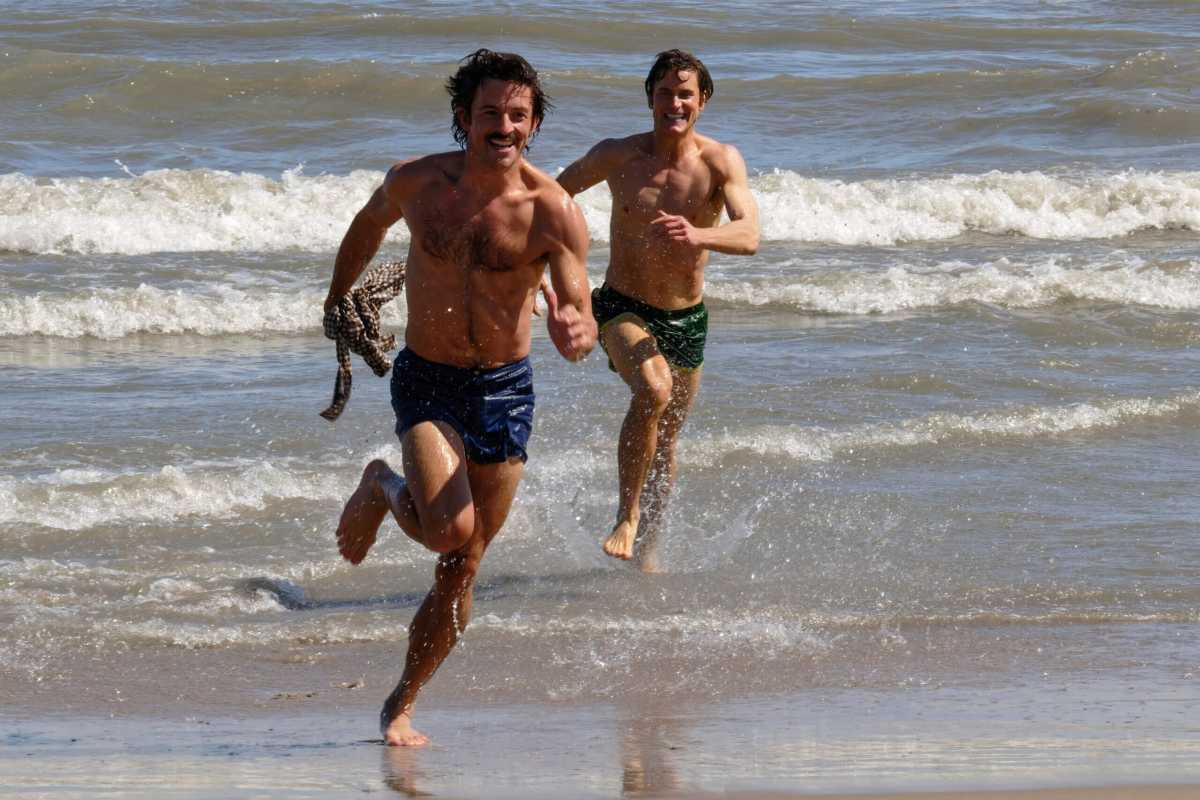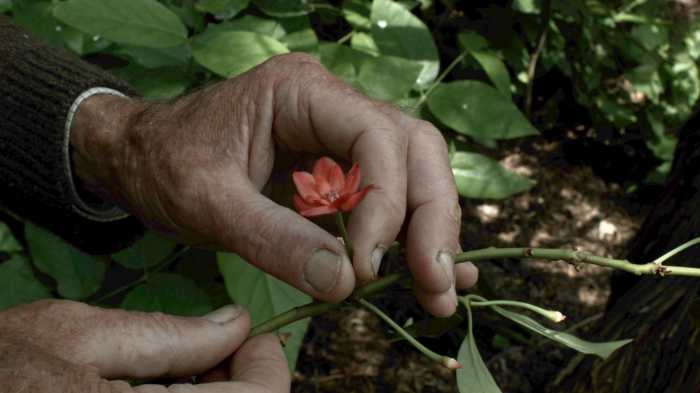The engrossing limited series “Fellow Travelers,” adapted from Thomas Mallon’s historical novel, recounts a relationship between Hawkins “Hawk” Fuller (Matt Bomer, who also produced) and Tim Laughlin (Jonathan Bailey) over the span of several decades of political upheaval and progress. The show opens in 1986, where Hawk learns that Tim is dying of AIDS in San Francisco. The series toggles back and forth in time to depict their relationship, which is filled with intense passion as well as intense heartbreak.
Hawk, who works in the State Department, first meets Tim in 1952, and helps the “good Catholic boy” get a job working for Senator McCarthy (Chris Bauer). As a thank you, Hawk asks Tim to “do research” for him as Hawk is close to the liberal Senator Wesley Smith (Linus Roache), who is on the anti-Communist hearing subcommittee with McCarthy, Roy Cohn (Will Brill), and David Schine (Matt Visser). The political intrigues and power struggles relating to the hearings are fascinating as McCarthy, Cohn, and Schine have a series of reversals of fortune as manipulated by Hawk, with Tim’s occasional assistance.
“Fellow Travelers,” however, also concentrates on the personal lives of its characters. Hawk is gay, but he stays pretty much under the radar of the powerful people he works with. He secretly meets Tim for trysts in their apartments, but they never go out to dinner or spend time in public together, which frustrates Tim, who falls deeply in love with the worldly Hawk. They do, however, visit an underground gay club, the Cozy, that Hawk’s friend Marcus (Jelani Alladin), a newspaper reporter, frequents. But all gay men and women have to be mindful of being caught in police raids.
A parallel storyline features Marcus, who is Black and gay, dealing with racism and homophobia in the 1950s, as he is denied entry into a popular club and treated disrespectfully in his career — as when he gets a temporary gig at the Washington Post. As Marcus dates Frankie (Noah J. Ricketts), a drag performer at the Cozy, their relationship experiences a series of ups and downs as the two men take different approaches to queer activism; Frankie is very confrontational, while Marcus more subdued.
Likewise, whereas Hawk is a bit amoral — doing what needs to be done to keep secrets and shift power — Tim is more honorable and idealistic. As the decades ensue, and their lives take serious turns, with Hawk marrying Senator Smith’s daughter Lucy (Allison Williams) and Tim enlisting in the army, their attitudes change.
“Fellow Travelers” shows the difficulties gay men and women had in the post-World War II era. One sequence depicts Hawk’s assistant, Mary (Erin Neufer), and her girlfriend, Caroline (Gabbi Kosmidis), worrying when Caroline is reported as being a suspected homosexual. Another scene has Hawk having to take a lie detector test to prove he does not have same-sex desires. In addition, a subplot has a character arrested for performing an obscene act in public and sent to an institution for conversion therapy. The lies and double lives these individuals had to maintain to “pass” at work, home, and in society are depicted with aplomb. Moreover, two characters die by suicide to avoid public shaming, emphasizing how lives were destroyed by the McCarthy hearings.
The series is best in this first half. Once things shift to the 1960s, the sexual tension between Tim and Hawk slackens, and the storylines become less interesting. One episode has Tim committing a crime burning draft cards. He holes up in Hawk’s cabin deciding on what his options are. Tim befriends Hawk’s troubled son, Jackson (Etienne Kellici), and advises Jackson and Hawk how to be more caring towards each other.
Another episode, set in 1978, unfolds largely on Fire Island, where Tim visits Hawk, who is medicating his grief with drinks, drugs, and mindless sex following a family tragedy. There are compelling exchanges between these two old friends/lovers as they alternate between fighting and tender heart-to-heart chats. As the gay liberation movement is gaining steam, the verdict in the Harvey Milk trial is used as a backdrop, and it fuels the Marcus/Frankie storyline. The series feels a bit forced trying to cram so much drama into this one episode — including Marcus taking in a homeless queer student — but the points being made are cogent.
“Fellow Travelers” ends in 1986 during the AIDS crisis when Tim asks Hawk to help him get the attention of the governor for AIDS spending. The episode shows how the relationship between Tim and Hawk ebbs and flows prior to a final encounter that is quite moving and may induce tears.
Overall, the series is both addictive and informative. The period costumes and art direction are exquisite. Almost every episode features some heated sex scenes. Hawk and Tim share a real ardor that makes viewers care about their characters, and Marcus and Frankie’s relationship is equally affecting. The ensemble cast is uniformly strong, with Bomer doing some career best work here, and Bailey and Alladin both excellent in support.
“Fellow Travelers” is a little uneven, but it is very entertaining as it illustrates the impact politics has on queer people between the 1950s and the 1980s.
“Fellow Travelers” | Various directors | Premiering on Showtime October 29



































